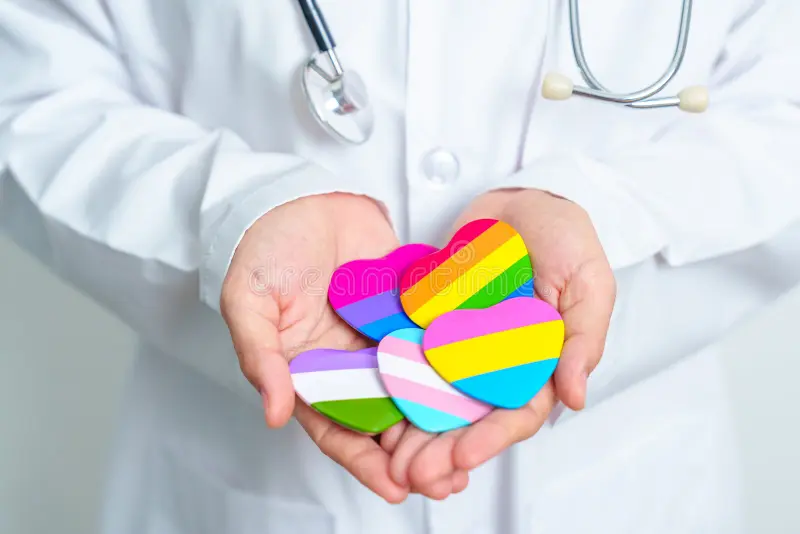Barriers, prejudice and lack of specialised care
Despite recent institutional changes, LGBTIQ+ people in Cyprus continue to face bureaucratic obstacles, indiscreet behaviours and a lack of specialised healthcare, according to the findings of the first nationwide study of its kind.
The research was carried out under the European programme Safeguarding of LGBTIQ+ People’s Right to Health (Safe-R) and focused on the experiences and needs of the community within the health sector.
The results show that many LGBTIQ+ individuals avoid or delay seeking medical or psychological support out of fear of prejudice or a non-inclusive stance from healthcare professionals. Seventeen percent said they would not seek help due to bias, 15% had avoided care because of past negative experiences, and 6% because of their sexual identity or gender expression.
Indirect discrimination and micro-aggressions
Discrimination in healthcare is rarely overt or openly hostile, but often indirect, through individual behaviours or systemic shortcomings. Patients reported experiences of micro-aggressions, offensive remarks, stereotypes, and assumptions based on heteronormative or binary gender models.
Though often subtle, these practices undermine the quality of care and erode trust and safety within the healthcare system. As a result, LGBTIQ+ people are frequently forced to rely on informal networks and community recommendations to find professionals who will treat them with respect — highlighting the lack of institutional protection and equal access.
Greater challenges for trans and non-binary people
Trans and non-binary individuals face the most complex challenges in accessing healthcare. These difficulties stem both from administrative obstacles and from insufficient training among many professionals on issues of gender identity and expression.
The situation is further complicated in rural areas, where the lack of specialised professionals, limited privacy protections, and heightened social prejudice intensify the barriers to equal and safe care.
Access to mental health services
Mental health emerged as one of the most critical issues. Twenty-four percent of participants reported living with a mental illness, while 43% attend therapy sessions. Notably, almost all respondents (97%) — regardless of whether they are in therapy — recognised the value of psychotherapy and its positive contribution to mental wellbeing.
However, many encounter professionals lacking the necessary LGBTIQ+-specific training, resulting in awkwardness, misunderstandings or missed opportunities for meaningful support. The quality of psychological care therefore remains inconsistent and dependent on individual practitioners’ sensitivity and knowledge.
What healthcare professionals say
At the same time, most healthcare professionals expressed willingness to provide inclusive care, but admitted they lacked specialised training and institutional backing to do so effectively.
The research team also noted significant difficulty in attracting healthcare professionals to participate in the study, both in the quantitative survey and in in-depth interviews — a finding that may indicate that LGBTIQ+ health issues are not considered a priority within the medical field.
Gaps in official and reliable information
The study also highlights significant gaps in the availability of official, locally adapted information on key topics such as safer sexual practices, PrEP and PEP treatments, hormone therapy and gender transition procedures.
As a result, many people turn to informal sources, which are not always reliable. At the same time, there is no institutionalised, safe and accessible complaints mechanism for cases of discrimination or mistreatment, meaning such incidents often go unrecorded and unaddressed.
Call for immediate institutional action
The findings show that despite shortcomings and systemic weaknesses, there is scope and momentum for meaningful reform. The shared recognition of the issues, both by the LGBTIQ+ community and healthcare professionals, underscores the need for urgent institutional measures.
Proposed interventions focus on improving policy, strengthening professional training, modernising administrative procedures and ensuring legal recognition, with the aim of building a healthcare system that consistently protects the dignity, safety and rights of all citizens, regardless of gender identity or sexual orientation.
Study background
The quantitative survey involved 125 LGBTIQ+ individuals, 55 healthcare professionals and students of medicine and nursing, while the qualitative survey included 19 in-depth interviews with LGBTIQ+ people and 8 with healthcare professionals.
The research was conducted by IMR/University of Nicosia™ under the European programme Safe-R (CERV – 2023 – Equal). The programme is coordinated by the Cyprus Family Planning Association, with partners including the University of Nicosia, the AIDS Solidarity Movement, Accept LGBTI Cyprus, and Dias Group.

Also read: SAFE-R survey to enhance LGBTIQ+ healthcare in Cyprus
For more videos and updates, check out our YouTube channel.



